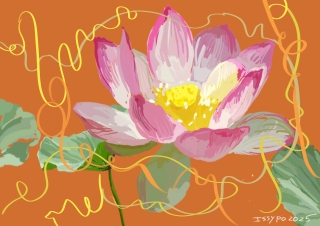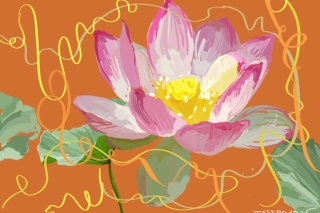Yale College, Timothy Dwight
Class of 2026
Global Affairs and History, Double Major
Nomadic Memories
Nomadic Memories
By Makda Assefa
My memories have legs.
Born from experience,
they roam through my mental palace, bearing the burden,
of emotion with heavy hearts,
they stroll.
Begrudgingly shouldering feelings, neither theres, nor mine, anymore; baggage abandoned.
Sometimes they’ll settle,
rest,
shack up somewhere,
and I when I visit their newly built homes, I’m not welcomed with open arms;
rather, the brunt becomes mine to bear. Memories exhausted,
muscles failing,
pass the weight onto me,
right in the nick of time.
And it all comes flooding back,
emotions,
neither fully mine nor completely foreign, rest comfortably on my arms.
Familiar muscle aches,
hurting less the second time.
As I struggle and strain,
the memories are liberated, joyfully leaping and dancing, the space is filled with light.
Despite my newfound burden, I am reminded,
of the absoluteness,
the finality,
of memory.
Unchangeable, and somehow constantly evolving, what are we without it?
Lighter, perhaps;
purposeless, definitely;
freer, if there is freedom in emptiness.
Ultimately, resolution presents itself,
now liberated, the memories take up more space than ever. No longer suppressed,
or buried beneath heavy sentiment,
what was once nomadic,
finally settled.

Art by Issy Po, Yale College, Ezra Stiles, Class of 2026
Makda began writing poetry two years ago as a personal exploration of their inner thoughts and emotions. Their early work, documented in a poetry notebook, served as a journal, charting the emotional landscape of their university years. Revisiting these earlier pieces, Makda experienced a powerful reconnection with past feelings, which, despite being reconciled, felt both vivid and strangely distant, existing as memories of emotions. This poem reflects on the role of memory in shaping identity. Makda explores the idea that memories, though foundational, are not static but rather dynamic forces that can both anchor and liberate. The poem aims to capture the paradoxical nature of memory – its weight providing stability, while its release offers both relief and a sense of unease. Ultimately, Makda hopes to convey the understanding that memory, while fixed in the past, continuously reshapes the self through ongoing revisitation and reinterpretation.
